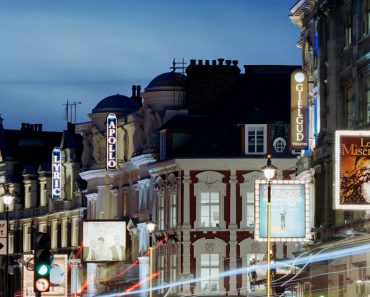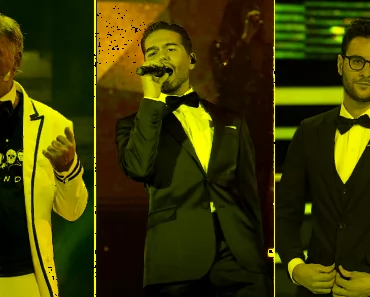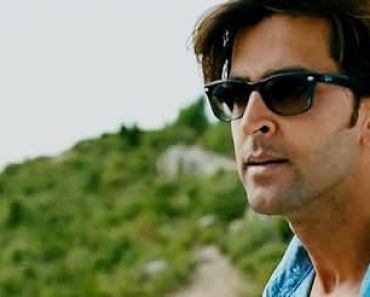Hejira world music radio show host recently interviewed Tamar Ilana about her new album Azadi. Following is a lightly edited transcript (for clarity) of that interview.
JSR: Welcome. How are you?
TI: I’m great. How are you?
JSR: I’m good. I see you’ve got your new baby with you.
TI: Yeah. Three weeks old.
JSR: What’s their name?
TI: Aayla.
JSR: Beautiful. So, you’ve got this great new album, Azadi, which means freedom, you probably don’t have as much freedom as you once did with a new baby.

TI: Different kind of freedom.
JSR: That’s a good one. I like that. You have this multi -ethnic background, which I’d like you to explain to the audience. Tell me how that translates into this album.
TI: Oh, sure. You mean tell you my whole life?
JSR: Well, we have about 15 minutes.
TI: My background is Ashkenazi Jewish on my mom’s side, via Lithuania, Latvia, and Montreal, I guess. On my dad’s side, he’s Indigenous from Canada, Cree Saulteaux background from Pasqua First Nation. I’m actually a member of Pasqua First Nation, which is out in Saskatchewan, Treaty 4 territory. Also, on my dad’s side via his mom, Roma, Romanian, and Scottish, so, you know, Canadian, I guess. Also, my daughter, Aayla, her dad is Muslim Pakistani from Lahore, Pakistan. So, the mix continues.
JSR: Wow.
TI: My mom’s an ethnomusicologist, Dr. Judith Cohen. I grew up really traveling and performing with her throughout the Mediterranean primarily and North America a lot, but Sephardic music, which is the Jews who were expelled from Spain in 1492 and went all across the Mediterranean, the Balkans, Greece, Turkey, and Morocco primarily, and we would spend a lot of time in those regions learning songs from Sephardic Jews, usually elderly women in old age homes, I’ll be honest. When you’re seven and eight, it’s boring, but it pays off later. People were right when they told me, I’ll appreciate it when I’m older. As a child I didn’t think I would. But now I do. I learned all these old songs from people who no longer exist and some of those songs haven’t been passed down very much. So, we’ve learned them and now we sing them.
JSR: Are the songs on the album? Sometimes I see it looks like there’s an author credit or a writer credit. Are they new songs, new versions of old songs, a mixture, or old songs that you’re just bringing to life?
TI: Perfect question. It’s all of the above. This is our fourth album. The first one really was almost all traditional, Sephardic songs from Turkey, Bosnia, Greece, Morocco, and a couple of traditional flamenco pieces that we adapted. I also grew up dancing and singing flamenco and I’ve lived in Spain a lot of my life. As the band progressed and different artists came and worked in the band and contributed, we started writing more original pieces based on all these cultures and other cultures like the oud players from Greece, the flamenco players, too. There’s been a couple of flamenco guitarists that have been there right now. There’s Benjamin Barrile, and he’s lived a lot in Spain and he’s of Italian and French-Canadian descent. He’s a professional flamenco artist. There’s been classical artists and more pop artists coming through. So, depending on what the artists bring, or what band members bring to the table, we’ve composed stuff over time that are related to all these cultures that we bring. The clarinetist on the album is Turkish, so we bring all these. elements into it. We’ve started really composing our own pieces based on these cultures and our musical backgrounds.
On this album, the Noches Noches song that you played, I’m so happy that you played it. I love that one. It’s just a short version. There are actually many verses. It’s a longer ballad, but I learned it from my mom. It’s an old Bosnian Sephardic ballad. It’s pretty. I sing it pretty straightforwardly. We’ve added instruments. It’s usually acapella. But it’s pretty much like that. The first song, Ventanas, is a Greek Sephardic song that we adapted and rearranged. There’s a couple of flamenco pieces.
JSR: These Sephardic songs, are they in Spanish, Ladino, a mixture?
TI: You’re asking all the right questions! I swear I didn’t plant these questions! It’s just awesome! They are in what is called Ladino. I guess it’s like a generic term now because in every country the language of the Sephardic Jews is slightly different. It’s based on Old Spanish, so it’s kind of understood if you speak Spanish, but originally in Morocco, they would call it Haketia, or in Greece and Turkey, maybe Español or Judeo-Español. Ladino is really the written language. I’m quoting my mom here verbatim if she’s listening.
I came across it naturally through my life by osmosis. Ladino is really the written form. It was Spanish written in Hebrew characters. But now it’s used generically across all the countries for the language itself, although there’s variations, for sure. In Morocco they’ll throw in Arabic words and in Turkey, Turkish words, et cetera. But now they just say Ladino. It’s kind of like that old Spanish.
JSR: It seems to be having a resurgence lately, even on TV, like if you saw The Beauty Queen of Jerusalem has Ladino in there and it’s something we weren’t seeing 20, 30 years ago.
TI: But it’s cool. I’ll take it. Let’s do it. Let’s roll with it.
JSR: You’ve got a new baby, so I assume you’re not touring any time soon,
TI: April.
JSR: That’s what I was going to ask. So, you’re going to be touring on this album. Where are you going?
TI: We’re going to the Maritimes in Canada, Nova Scotia, New Brunswick and a bunch of places. We’re out for about 10 days on the road there. I’m super excited for the first tour.
JSR: I should have asked you this at the beginning. Where are you right now?
TI: I’m in Toronto.
JSR: Any chance you may get to the U. S. Midwest at some point?
TI: I hope so. We’ve toured some places out there. We’ve never played Wisconsin. I’d love to. I’ve driven through Wisconsin. It’s so beautiful.
JSR: It would be great to have you. We recently, had the band Polky live in the station. So, we can do that too. You’ve talked about some of the songs on the album. Are there any other songs you want to point out with a particular meaning or a history for our audience to know?
TI: Sure. The title track Azadi was a beautiful collaborative piece had many people contributing to it. It was originally written by, composed by Demetri Petsalakis, the oud player in the band. We’ve been playing together for 13-14 years now. He’s an incredible musician and artist. He composed it for an orchestra show that we did a couple of years ago with the Scarborough Philharmonic Orchestra. His wife, Lauren Barnett, wrote the original lyrics in English. It was right around the time when the freedom for women movement was happening in Iran. We were both really affected by it and thinking about it a lot. She took that inspiration to write the lyrics for the song all about freedom for women. I’m getting goosebumps thinking about it because it’s really necessary. But then I worked with a couple of other artists, Mekaal Hasan, a great artist from, from Pakistan, and Rafi Reza, a family member of my husband’s, to translate some of the lyrics into Urdu, which is the language of my husband and one of the languages that baby Aayla will speak. So, it’s really personal and, but has the contribution of two great friends and long-term collaborators, Lauren and Dimitri. English and Urdu.
JSR: I’m curious, when you perform, since you have a flamenco background, do you do flamenco dancing as well? I mean, a lot of photography you sent me, including the cover of Azadi has a bit of a flamenco feel.
TI: Yeah, definitely. I started dancing flamenco when I was around seven. I studied a bit more in Spain before that, but I don’t remember so much. My mom says I was in Amor de Dios when I was five, which is a big flamenco academy in Madrid. But I really started here in Toronto with Esmeralda Enrique, the greatest artist, in my opinion, across the country. I’m biased. But that’s all right. She’s super beautiful. She’s a matriarch of flamenco here in the city and in Canada. I just saw a performance of hers when I was a kid and I said, I want to do that and my mom said, we’ll go talk to her. And I did! I taught in her school later for many years and I sing with her company and that became a big part of my life. I ended up moving to Spain and studying flamenco at a big Academy there, Fundacion Cristina Heeren. I had already been going back and forth to Spain with my mom for her musical research since I was 5 or so. So, I spoke Spanish already and I sang Sephardic music already. There’s a lot of, I don’t want to say crossover, but contributing factors that make flamenco more obviously a part of my life. I just love it a lot and it influences everything I do, both in the singing and dancing. There was nobody in the city at the time, around 2009 or 2010, in Toronto, that was singing flamenco actively. It was really needed, so. I did it!
JSR: Last topic before we get back to your music. Tell us about the band Ventanas, which I know means windows. I’m not sure if you chose that for a reason.
TI: Well, we founded it in 2011. Some of the members have changed over time. Currently, we have Demetri Petselakis, who I mentioned, the oud player. Jessica Deutsch, violin. Tyler Emond on bass, who also produced the album and did a wonderful job. He engineered it as well. Mastered by Justin Gray and Benjamin Barrile on flamenco guitar; Derek Gray on percussion. We had multiple guests on the album as well. Marito Marques on drums and Naghmeh Farahmand, Iranian, amazing percussionist. Aline Morales on vocals from Brazil and percussion; Selcuk Suna from Turkey and Alexis Baro from Cuba on trumpet. There are just amazing people in the city. I’m so lucky!
JSR: A real international effort. The name Ventanas, why did you choose that?
TI: Well, we thought it was like a reflection of our own cultures, many cultures, windows into our own cultures and into other cultures and sort of that back and forth feeling that you’re seeing through the window, you’re looking into other cultures, you’re looking back into your own.
JSR: With that I hope you do get to come to Wisconsin and the Madison area.
TI: We will come. Yeah. Can’t say when, but we’ll be there.
JSR: All right. That’s usually the way I say goodbye when I’m traveling. I can’t say when, but I’ll be back. We’re going to get back to your music and best wishes with the new baby and with your music.
TI: Thank you.







